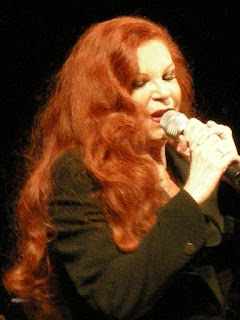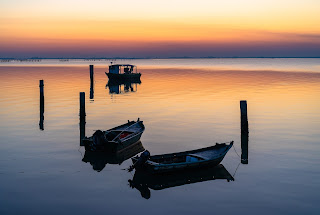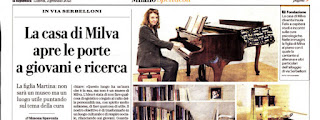Contemporary star has won multiple awards
.jpg) |
| Elio Germano has become one of Italy's most popular and acclaimed movie actors |
Germano has won six David di Donatello awards - Italy’s highest film honour - across a career in which he has won praise for the emotional depth of his performances in films often notable for their social realism.
The prestigious prize, named after the bronze statue of the biblical hero created by the Renaissance sculptor Donatello, is awarded each year by the Academy of Italian Cinema. Only four actors have won the award more times since their inception in 1955.
He won it five times as best actor, the first coming in 2007 in what was his breakthrough year, cast in one of the lead roles in Daniele Luchetti’s Mio fratello è figlio unico - My Brother Is an Only Child.
Four years later, Germano teamed up with Luchetti again to pick up the best actor award for a second time for his performance in La nostra vita - Our Life - for which he also shared a Palme d’Or at the Cannes Film Festival.
He was best actor again 2015 for his portrayal of the poet Giacomo Leopardi in Mario Martone’s Il giovane favoloso - The Fabulous Young Man, which was alternatively titled Leopardi. Further David di Donatello awards followed for Giorgio Diritti’s Hidden Away (best actor, 2020) and Andrea Segre’s Berlinguer - La grande ambizione (best actor, 2024) in which he played the Communist leader, Enrico Berlinguer.
 |
| Elio Germano's breakthrough came in Mio Fratello è Figlio Unico |
Born in Rome to a Molisan family from Duronia in the province of Campobasso, Germano made his screen debut at the age of just 12 in the directing duo Castellano e Pipolo's 1992 movie Ci hai rotto papà. He received formal acting training at the Teatro Azione in Rome.
He had an opportunity to work in theatre but his career moved in a different direction after landing a part in Carlo Vanzina's 1999 comedy, Il cielo in una stanza, which launched him as a popular actor with Italian audiences.
His breakthrough year, though, was 2007, when he was cast as the lead in the successful movies Fallen Heroes as well as My Brother is an Only Child, both directed by Daniele Luchetti.
The following year he received his first international recognition, winning the Shooting Stars Award at the 58th Berlin International Film Festival.
Germano’s success in winning over audiences and critics can be attributed to a number of characteristics in his acting style.
For example, he has consistently rejected the polished, romantic archetype of the Italian male lead, gravitating instead towards flawed, working-class, politically entangled characters, of which Accio in My Brother Is an Only Child was a prime example. His performances have been notable for psychological nuance and emotional realism, reshaping audience expectations of masculinity and heroism in Italian film.
 |
| Germano won plaudits for his animated portrayal of the former Communist leader Enrico Berlinguer |
He has shown himself to be equally at home portraying historical figures such as Leopardi and Berlinguer, which showcased his ability to humanise iconic individuals without flattening their complexity.
For Germano, 2024 was a busy year. Apart from taking the lead role in Berlinguer - La grande ambizione, he collaborated again with Luchetti in the director’s 2024 movie, Confidenza - Trust - also starring Federica Rosselini, in which he plays a revered schoolteacher haunted by his past, and starred opposite Tony Servillo and Daniela Marra in Sicilian Letters, based on a true story, in which Germano plays the Mafia boss Matteo Messina Denaro, who succeeded Bernardo Provenzano and Salvatore Riina as the unchallenged boss of all bosses within the Sicilian Cosa Nostra, spending three decades as a fugitive.
Away from acting, Germano says his passion is music. He writes songs and performs with a rap group, BestieRare, with whom he has so far recorded three albums.
 |
| Duronia, perched on a hill in Molise, has a history stretching back to the third century BC |
Duronia, where Germano has his family roots, is a historic hilltop village in the Molise region of southern Italy, about 20km (12 miles) northwest of Campobasso, nestling in an area of wooded hills and steep-sided valleys. The name Duronia can be traced back to a Samnite settlement conquered by Rome in 293 BC, although the modern town adopted this name only after 1875, having previously been known as Civitavecchia. Above the town lie remnants of Stone Age megalithic structures, believed to have been used for funerary and commemorative rituals. Duronia today is a popular destination for Canadian descendants of emigrants who left the area in the late 19th and early 20th centuries, settling in particular in Montreal and Vancouver. The annual Feast of San Rocco, a celebration dedicated to Duronia’s patron saint, which takes place every August, is another highlight.
Find accommodation in Duronia with Hotels.com
 |
| Rome's Non-Catholic Cemetery, just a short distance from the Teatro Azione, is well worth visiting |
The Teatro Azione, where Germano received his formal theatrical education, is one of Rome’s most respected acting schools, known for its rigorous training in both theatre and film. Founded in 1983 by Cristiano Censi and Isabella Del Bianco, its alumni apart from Elio Germano include Maya Sansa, Carolina Crescentini and Nicolas Vaporidi. It is located in Via dei Magazzini Generali in the Ostiense district, once an industrial area but now a vibrant and evolving area just south of the historic centre, notable for street art, nightlife, and contemporary culture. Attractions nearby include Rome’s Non-Catholic Cemetery (Cimitero Acattolico), also referred to as the Protestant Cemetery or the English Cemetery, a serene garden cemetery that is the resting place of John Keats, Percy Shelley and Antonio Gramsci among others, with a heavy emphasis on artists, writers and philosophers. Also look out for the Piramide Cestia, a striking 1st-century BC Egyptian-style pyramid built as a tomb for Gaius Cestius, and the Centrale Montemartini, a former power plant turned museum, where classical sculptures are dramatically displayed among turbines and industrial relics.
Rome hotels from Expedia
More reading:
The comic genius who won seven David di Donatello awards
Italy’s ultimate screen siren who is also an Oscar winner
The stage and screen star once dubbed ‘Italy’s Olivier’
Also on this day:
1599: The birth of architect Francesco Borromini
1773: The birth of biologist Agostino Bassi
1930: The birth of fashion designer Nino Cerruti
1955: The birth of blues musician Zucchero



.jpg)




.jpg)






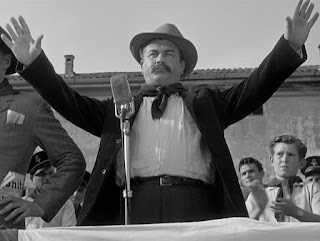

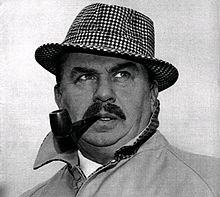
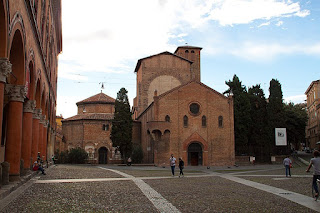
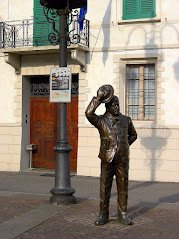

.jpg)
